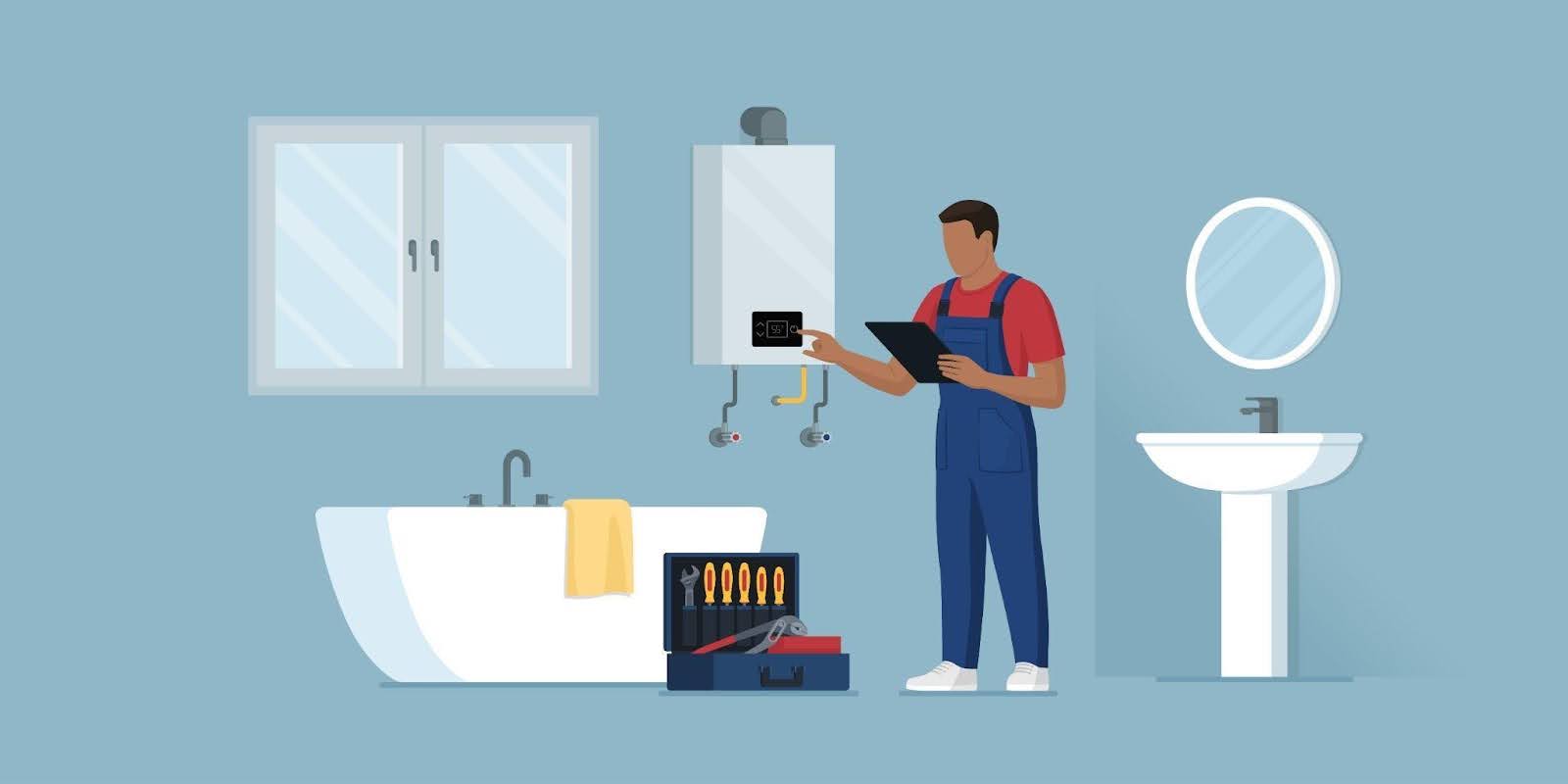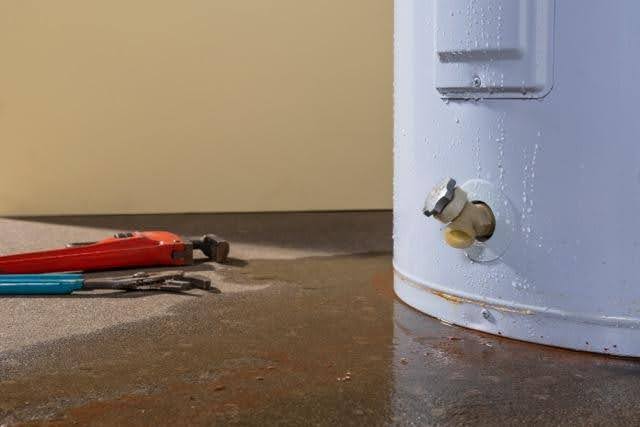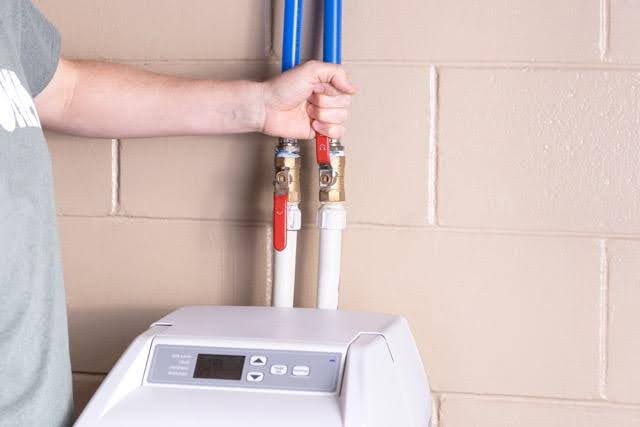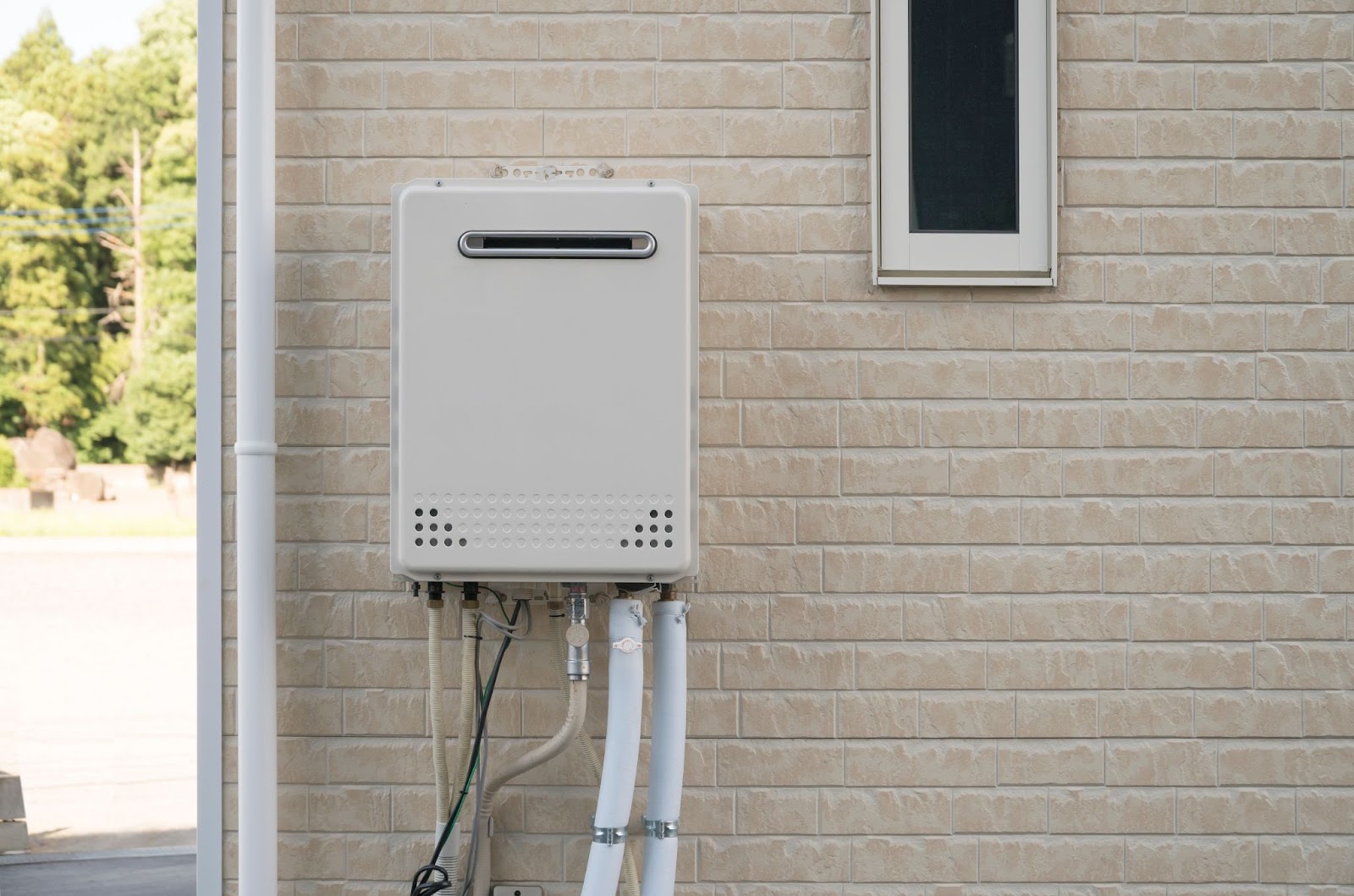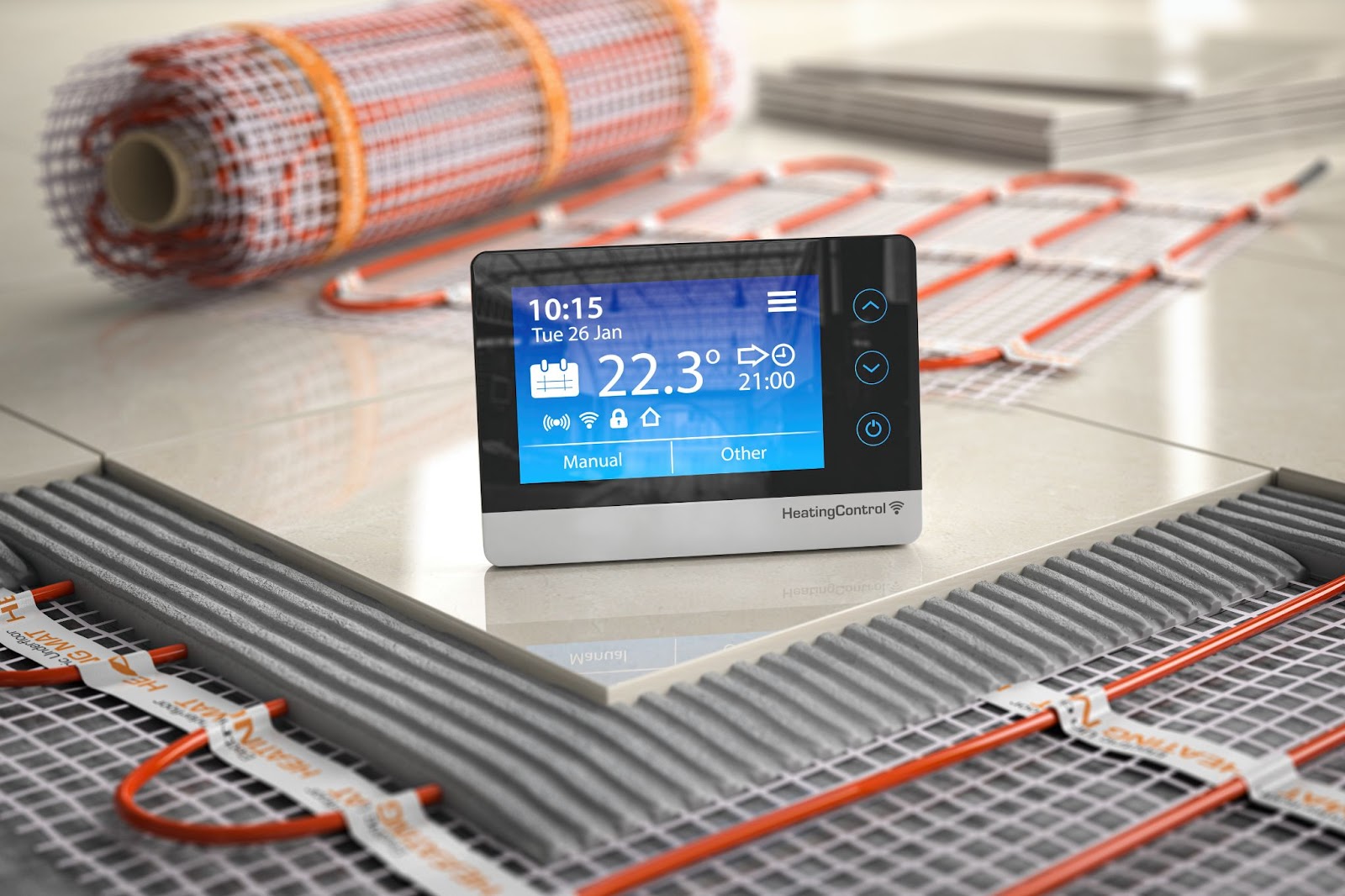Apartment residents often overlook the warning signs of a failing water heater until it’s too late — but the risks of waiting can be severe. A water heater on the verge of bursting is a potential disaster.
When tanks fail, they unleash a flood of scalding water, damaging floors, walls, furniture, and even neighboring units in a matter of minutes.
Beyond the financial burden of repairs, there are also safety hazards such as burns, mold growth, and electrical risks. That’s why it’s so important to understand what causes water heaters to fail, how to spot the signs early, and what steps to take to prevent a burst.
By staying informed, you’ll protect your home, save money on costly water heater repair or replacement, and avoid an unexpected plumbing emergency.
Why water heater bursts are a serious concern
A burst water heater is a major emergency that could cause extensive damage to your home and cost thousands in repairs. Unlike minor leaks or small malfunctions that may be addressed with timely water heater repair, a full rupture can release dozens of gallons of water within minutes.
In an apartment setting, this affects neighboring apartments, damaging walls, floors, ceilings, and personal belongings.
The risks are equally serious from a safety standpoint. A compromised tank often stems from issues like internal corrosion, sediment buildup, or excessive pressure — all common signs of a failing water heater. Left unchecked, these problems can strain the tank until it cracks or bursts, creating the potential for electrical hazards, mold growth, and unsafe living conditions.
Another concern is cost. A planned water heater replacement is far more affordable than dealing with the aftermath of a burst tank. Emergency restoration, property damage, and insurance claims add up quickly, making prevention the smarter, safer choice.
Common warning signs of a water heater that’s about to burst
Knowing the early red flags of a struggling water heater can make all the difference between a simple repair and a catastrophic burst. Here are the most common warning signs to watch for:
1. Inconsistent or insufficient hot water
If your showers suddenly turn cold halfway through or your tap water fluctuates in temperature, your water heater may be losing efficiency. Sediment buildup or a failing heating element often causes this issue.
2. Strange noises from the tank
Popping, rumbling, or banging sounds usually indicate sediment hardening at the bottom of the tank. As the water heats, steam bubbles get trapped beneath the debris, straining the tank and increasing the risk of cracks or leaks.
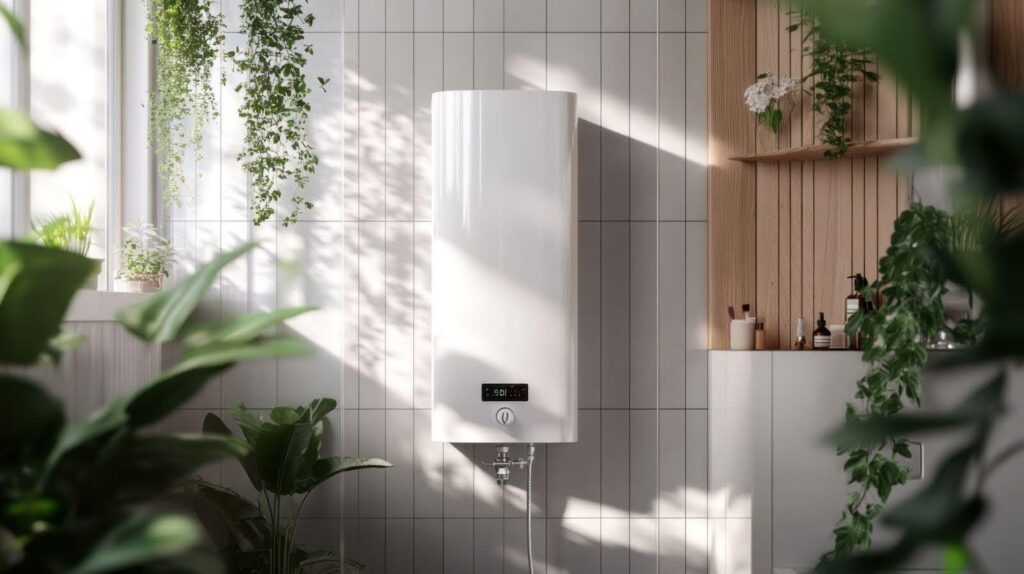
3. Rusty or discolored water
Rusty or muddy water indicates corrosion inside the tank or in the water heater’s inlet valve. This is a serious sign that the tank is weakening and may soon leak or burst.
4. Water pooling or visible leaks
Even small puddles or damp spots around the base of your water heater should not be ignored. Leaks can quickly grow, leading to full tank failure.
5. Age of the unit
Most water heaters last between eight and 12 years. If yours is approaching or past this range, replacement is usually more cost-effective than constant repairs — and it reduces the risk of sudden bursts.
6. Rising energy bills
If your water heater works harder to deliver the same results, you’ll often notice higher utility bills. This inefficiency usually means internal components are failing.
7. Frequent repairs
If you’re calling for water heater repair more than once or twice a year, your system may be on its last leg. In many cases, opting for a complete water heater replacement saves money in the long run.
What to do if you notice the signs of a failing water heater
If you spot any of the warning signs that your water heater may be on the verge of bursting, it’s important to act quickly. The longer you wait, the higher the risk of serious water damage and costly repairs. Here’s what to do:
1. Shut off the power and water supply
For electric water heaters, turn off the power at the circuit breaker. For gas units, set the gas control valve to “off.” Next, locate the cold water shut-off valve near the top of the heater and turn it clockwise to stop the water flow. This prevents more pressure from building inside the tank.
2. Drain the tank (if it’s safe to do so)
If there are visible leaks or pooling water, carefully drain some of the tank’s contents into a bucket or through a hose connected to the drain valve at the bottom of the unit. This will relieve pressure and reduce the chance of the tank rupturing.
3. Call a professional plumber immediately
Don’t attempt a DIY fix — issues this severe need expert attention. A licensed plumber can determine whether a water heater repair will solve the problem or if a full water heater replacement is the safer and more cost-effective option.
4. Protect your home from damage
While waiting for the plumber, mop up standing water, set out towels, or use a wet/dry vacuum to prevent water damage from spreading. If necessary, set up fans or a dehumidifier to reduce moisture in the area.
5. Consider long-term solutions
If your water heater is nearing the end of its lifespan, replacing it with a new, energy-efficient model can save you money and prevent future emergencies. A professional can walk you through your options and ensure your new system is installed safely.
⚠️ Safety first
If you ever notice the smell of gas, hear a hissing sound near your water heater, or suspect an electrical hazard, leave the area immediately. Call your utility company and a professional plumber right away. Do not attempt to handle these dangerous situations on your own.
Preventative measures for apartment residents
Apartment residents can significantly reduce the risk of water heater failures or bursts by practicing simple, proactive maintenance habits.
Check for visible warning signs
The first step is regularly checking for visible warning signs, such as rust around the tank, pooling water, or unusual noises. Noticing these early will give you time to report issues before they escalate into emergencies.
Monitoring water temperature settings
Another preventative measure is monitoring water temperature settings. Most experts recommend keeping the thermostat set to around 120°F. Higher temperatures put extra strain on the tank and increase the risk of overheating or scalding, while a moderate setting helps extend the water heater’s life.
Staying alert to water quality changes
Residents should also be alert to changes in water quality, such as rusty water, unusual odors, or sediment buildup. These can indicate internal corrosion or mineral deposits that shorten the water heater’s lifespan.
Additionally, it is essential to monitor water pressure. Extremely high pressure will stress the tank and pipes, so reporting any noticeable changes is essential.
Communicate with property management
Finally, apartment dwellers should communicate regularly with property management. Ask about the building’s maintenance schedule and report small issues promptly. Early reporting allows landlords or management to arrange professional inspections or water heater repair before problems become costly or dangerous.

Call Salisbury Plumbing for emergency help
Plumbing emergencies don’t wait for a convenient time, nor should you. If you ever find yourself dealing with a burst water heater, a major leak, or any other urgent plumbing issue, don’t hesitate to call Salisbury Plumbing right away.
Our licensed professionals will respond quickly, protect your home from further damage, and restore your plumbing system with expert care. You can trust us to handle the problem safely and efficiently, from emergency water heater repair to full water heater replacement.
Contact Salisbury Plumbing today for fast, dependable emergency plumbing services you can count on — day or night.


